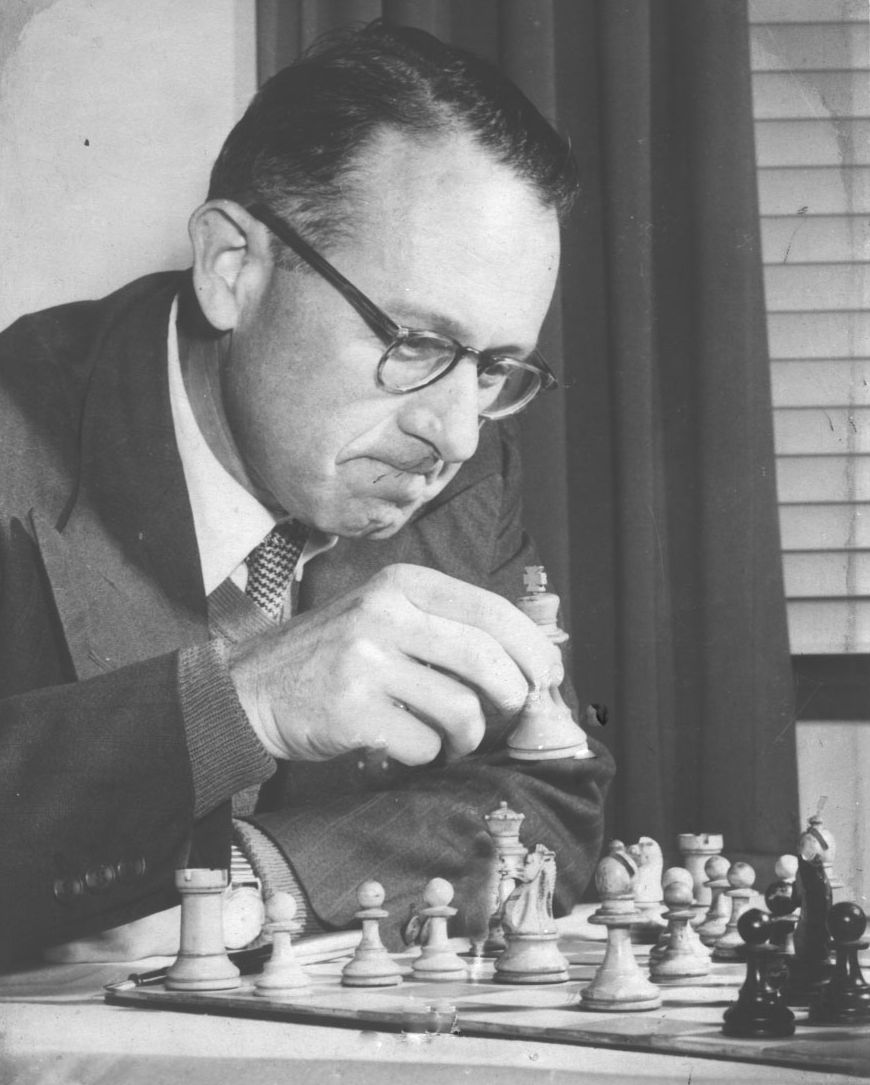
Moss Kolnik in 1956 (photo courtesy Alan Kolnik)

Moss Kolnik won the Durban championship on no fewer than ten
occasions, his first win being in 1945 and his final win being
in 1971. He would probably have won the title on even more occasions,
had he not been living in New Zealand from 1961 to 1967. He marked
his return to Durban in 1968 with an emphatic 8½ points from 9
victory in the Championship, no less than 2 points ahead of runner-up
Blackburn.
Moss Kolnik was born on 2 February 1921 in Kozanhorodok, Belarus (Poland).
He died on 9 August 1981 in Durban. Belarus only became an independent
republic in 1991, and was dominated in the past by its neighbours Russia,
Poland and Lithuania. It is known that his father was from Belarus and
that his mother was Polish. Sometime before WW2 his family emigrated to
South Africa, when Moss was still a child, and they settled in Cape Town,
possibly in the late 1930's. There is a famous game against Schurr played
in Cape Town in 1940, and his sister married into the Sachar family, who
were Lithuanian Jews, in Cape Town in 1943. Moss was married in 1947 in
Johannesburg and had 3 children and several grand children.
After obtaining a degree in Civil Engineering, Moss joined the South African
Railways and Harbours, where he was responsible for much work on Durban
harbour. In his later years he was the Engineer in charge of Roads in the
Natal coastal area - which is why you will find that there is a road named
after him, namely Moss Kolnik Drive in Amanzimtoti.
Moss captured the Natal Closed title on 4 occasions, and in 1970
he succeeded in winning the Open title as well.
For many years Moss was an automatic choice for the South African
Closed championship. He played in the Closed on 7 occasions, with
his best placings being 4th in 1951 and again in 1957.
Here is a selection of games by Kolnik. At his peak Moss had a sharp tactical eye, and Kenneth Kirby described the combination in the first game as "one of the most daring and inspired combinations in South African chess history". Irving Chernev liked the second game so much that he published it as game 136 in his book "1000 Best Short Games Of Chess".